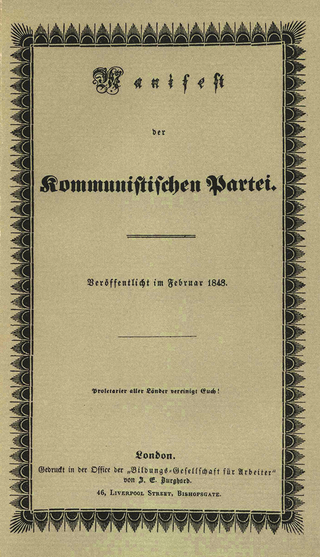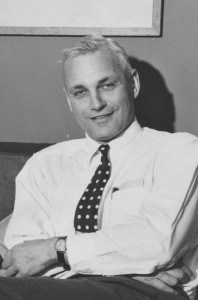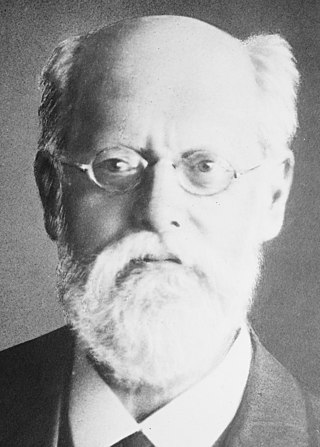
The Communist Manifesto, originally the Manifesto of the Communist Party, is a political pamphlet written by Karl Marx and Friedrich Engels, commissioned by the Communist League and originally published in London in 1848. The text is the first and most systematic attempt by Marx and Engels to codify for wide consumption the historical materialist idea that "the history of all hitherto existing society is the history of class struggles", in which social classes are defined by the relationship of people to the means of production. Published amid the Revolutions of 1848 in Europe, the Manifesto remains one of the world's most influential political documents.

An intellectual is a person who engages in critical thinking, research, and reflection about the reality of society, and who proposes solutions for its normative problems. Coming from the world of culture, either as a creator or as a mediator, the intellectual participates in politics, either to defend a concrete proposition or to denounce an injustice, usually by either rejecting, producing or extending an ideology, and by defending a system of values.

Paul Marlor Sweezy was a Marxist economist, political activist, publisher, and founding editor of the long-running magazine Monthly Review. He is best remembered for his contributions to economic theory as one of the leading Marxian economists of the second half of the 20th century.

John Bates Clark was an American neoclassical economist. He was one of the pioneers of the marginalist revolution and opponent to the Institutionalist school of economics, and spent most of his career as professor at Columbia University.

John Thomas Flynn was an American journalist best known for his opposition to President Franklin D. Roosevelt and to American entry into World War II. In September 1940, Flynn helped establish the America First Committee (AFC), which he abandoned when Pearl Harbor was attacked a year later, switching to support of the war effort. In his intense opposition to Roosevelt, Flynn later went on to advance the Pearl Harbor advance-knowledge conspiracy theory.
Karl Dietrich Bracher was a German political scientist and historian of the Weimar Republic and Nazi Germany. Born in Stuttgart, Bracher was awarded a Ph.D. in the classics by the University of Tübingen in 1948 and subsequently studied at Harvard University from 1949 to 1950. During World War II, he served in the Wehrmacht and was captured by the Americans while serving in Tunisia in 1943. Bracher taught at the Free University of Berlin from 1950 to 1958 and at the University of Bonn since 1959. In 1951, Bracher married Dorothee Schleicher, the niece of Dietrich Bonhoeffer. They had two children.
Sonderweg refers to the theory in German historiography that considers the German-speaking lands or the country of Germany itself to have followed a course from aristocracy to democracy unlike any other in Europe.
Communism is a left-wing to far-left sociopolitical, philosophical, and economic ideology within the socialist movement, whose goal is the creation of a communist society, a socioeconomic order centered around common ownership of the means of production, distribution, and exchange that allocates products to everyone in the society based on need. A communist society would entail the absence of private property and social classes, and ultimately money and the state.
Democratic socialism is a left-wing set of political philosophies that supports political democracy and some form of a socially owned economy, with a particular emphasis on economic democracy, workplace democracy, and workers' self-management within a market socialist, decentralised planned, or democratic centrally planned socialist economy. Democratic socialists argue that capitalism is inherently incompatible with the values of freedom, equality, and solidarity and that these ideals can only be achieved through the realisation of a socialist society. Although most democratic socialists seek a gradual transition to socialism, democratic socialism can support revolutionary or reformist politics to establish socialism. Democratic socialism was popularised by socialists who opposed the backsliding towards a one-party state in the Soviet Union and other nations during the 20th century.

Joseph Arnold Weydemeyer was a military officer in the Kingdom of Prussia and the United States as well as a journalist, politician and Marxist revolutionary.
Hal Draper was an American socialist activist and author who played a significant role in the Berkeley, California, Free Speech Movement. He is known for his extensive scholarship on the history and meaning of the thought of Karl Marx.
State socialism is a political and economic ideology within the socialist movement that advocates state ownership of the means of production. This is intended either as a temporary measure, or as a characteristic of socialism in the transition from the capitalist to the socialist mode of production or to a communist society. State socialism was first theorised by Ferdinand Lassalle. It advocates a planned economy controlled by the state in which all industries and natural resources are state-owned.
Socialism in one country is a theory developed by Joseph Stalin to strengthen socialism within the country rather than socialism globally. Given the defeats of the 1917–1923 European communist revolutions, Stalin encouraged the theory of the possibility of constructing socialism in the Soviet Union. The theory was eventually adopted as Soviet state policy.
Orthodox Marxism is the body of Marxist thought which emerged after the death of Karl Marx and Friedrich Engels in the late 19th century, expressed in its primary form by Karl Kautsky. Kautsky's views of Marxism dominated the European Marxist movement for two decades, and orthodox Marxism was the official philosophy of the majority of the socialist movement as represented in the Second International until the First World War in 1914, whose outbreak caused Kautsky's influence to wane and brought to prominence the orthodoxy of Vladimir Lenin. Orthodox Marxism aimed to simplify, codify and systematize Marxist method and theory by clarifying perceived ambiguities and contradictions in classical Marxism. It overlaps significantly with Instrumental Marxism.
Reformism is a trend advocating the reform of an existing system or institution – often a political or religious establishment – as opposed to its abolition and replacement via revolution.
A socialist state, socialist republic, or socialist country, sometimes referred to as a workers' state or workers' republic, is a sovereign state constitutionally dedicated to the establishment of socialism. The term communist state is often used synonymously in the West, specifically when referring to one-party socialist states governed by Marxist–Leninist communist parties, despite these countries being officially socialist states in the process of building socialism and progressing toward a communist society. These countries never describe themselves as communist nor as having implemented a communist society. Additionally, a number of countries that are multi-party capitalist states make references to socialism in their constitutions, in most cases alluding to the building of a socialist society, naming socialism, claiming to be a socialist state, or including the term people's republic or socialist republic in their country's full name, although this does not necessarily reflect the structure and development paths of these countries' political and economic systems. Currently, these countries include Algeria, Bangladesh, Guyana, India, Nepal, Nicaragua, Sri Lanka and Tanzania.

Utopian socialism is the term often used to describe the first current of modern socialism and socialist thought as exemplified by the work of Henri de Saint-Simon, Charles Fourier, Étienne Cabet, and Robert Owen. Utopian socialism is often described as the presentation of visions and outlines for imaginary or futuristic ideal societies, with positive ideals being the main reason for moving society in such a direction. Later socialists and critics of utopian socialism viewed utopian socialism as not being grounded in actual material conditions of existing society. These visions of ideal societies competed with revolutionary and social democratic movements.

Karl Johann Kautsky was a Czech-Austrian philosopher, journalist, and Marxist theorist. A leading theorist of the Social Democratic Party of Germany (SPD) and the Second International, Kautsky advocated orthodox Marxism, which emphasized the scientific, materialist, and determinist character of Karl Marx's work. This interpretation dominated European Marxism for two decades, from the death of Friedrich Engels in 1895 to the outbreak of World War I in 1914.
The history of socialism has its origins in the Age of Enlightenment and the 1789 French Revolution along with the changes that it brought, although it has precedents in earlier movements and ideas. The Communist Manifesto was written by Karl Marx and Friedrich Engels in 1847-48 just before the Revolutions of 1848 swept Europe, expressing what they termed scientific socialism. In the last third of the 19th century parties dedicated to Democratic socialism arose in Europe, drawing mainly from Marxism. The Australian Labor Party was the world's first elected socialist party when it formed government in the Colony of Queensland for a week in 1899.

America's 60 Families is a book by American journalist Ferdinand Lundberg published in 1937 by Vanguard Press. It is an argumentative analysis of wealth and class in the United States, and how they are leveraged for purposes of political and economic power, specifically by what the author contends is a "plutocratic circle" composed of a tightly interlinked group of 60 families.









